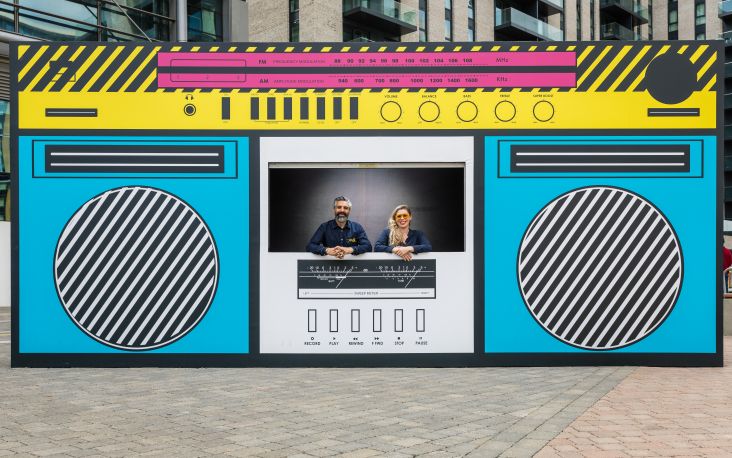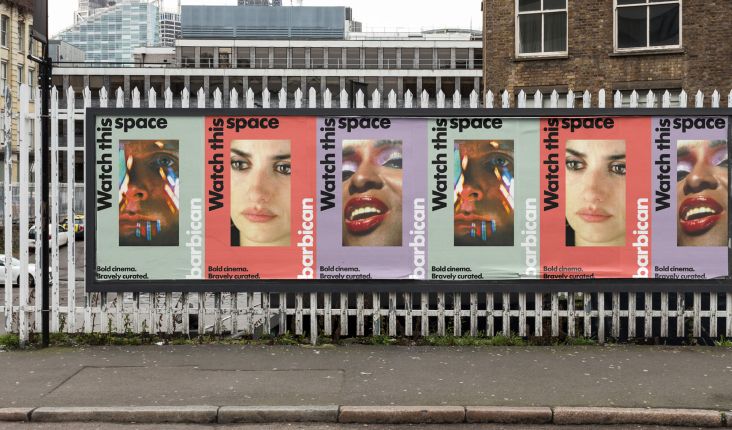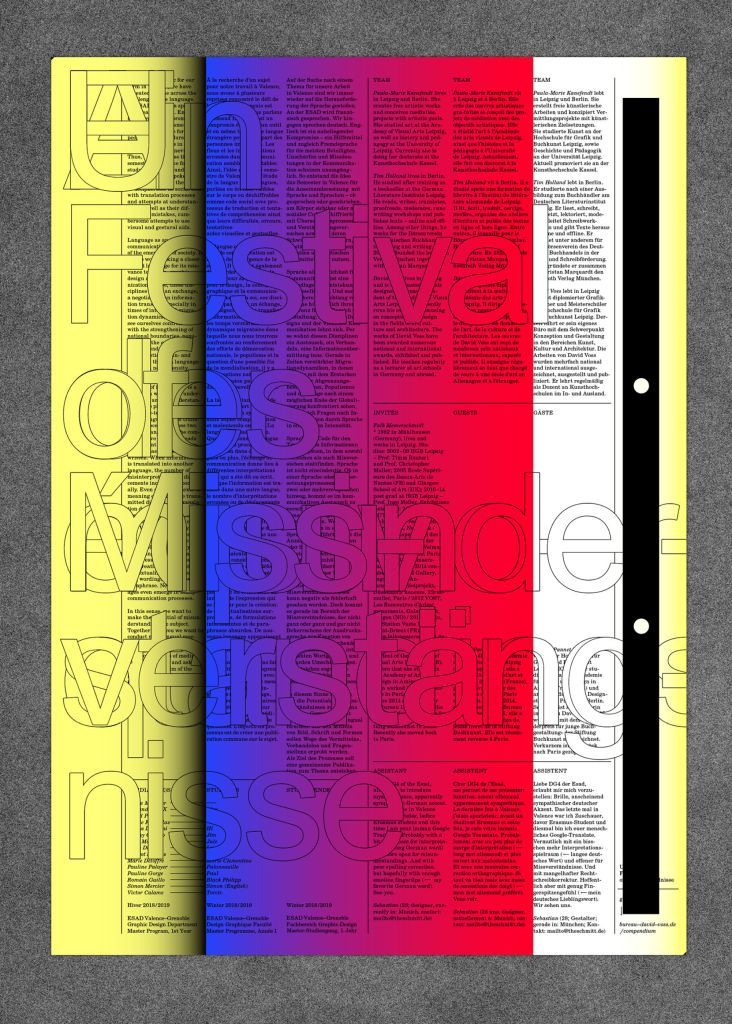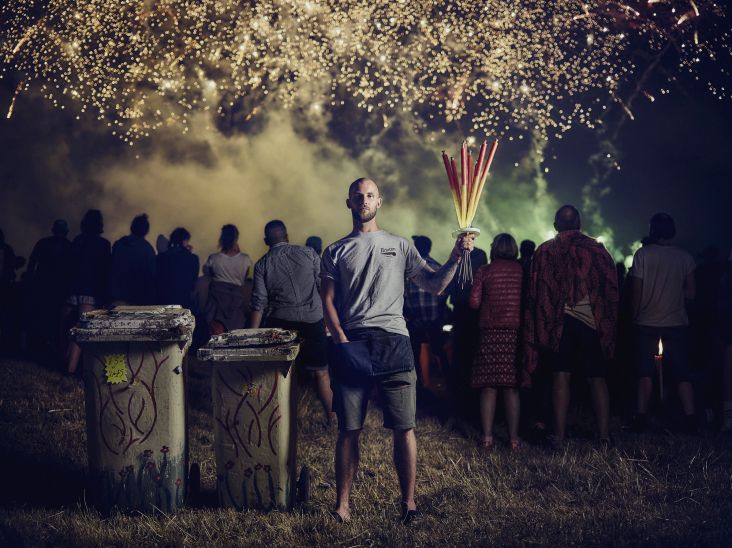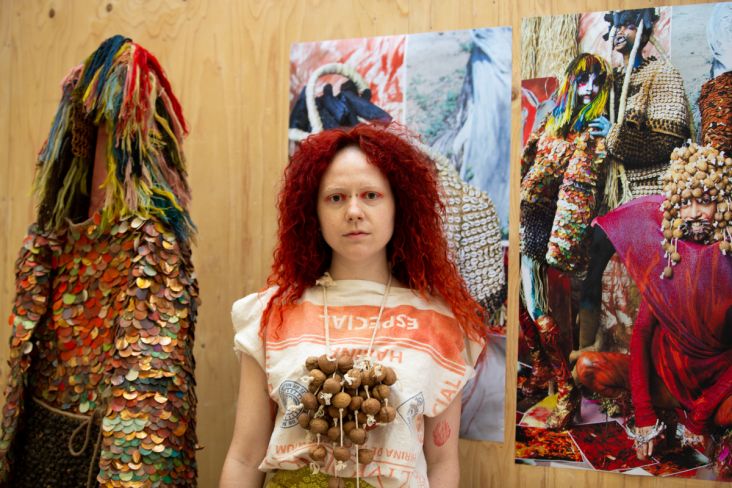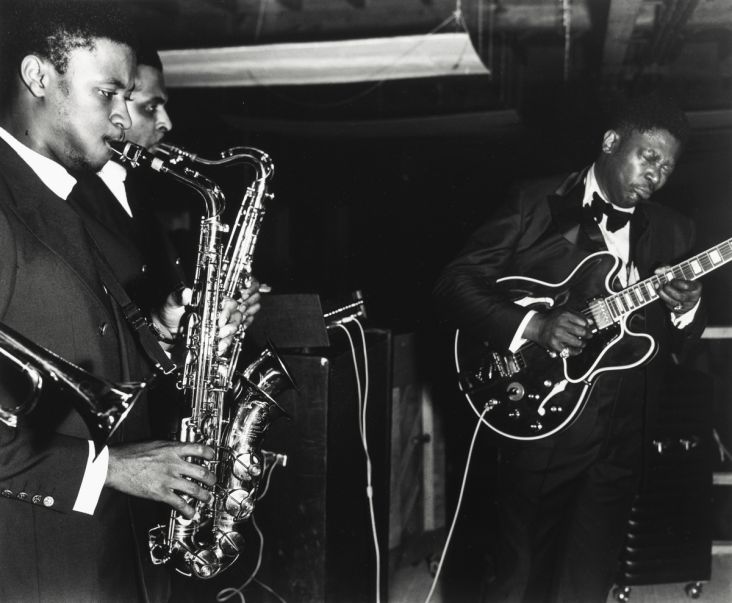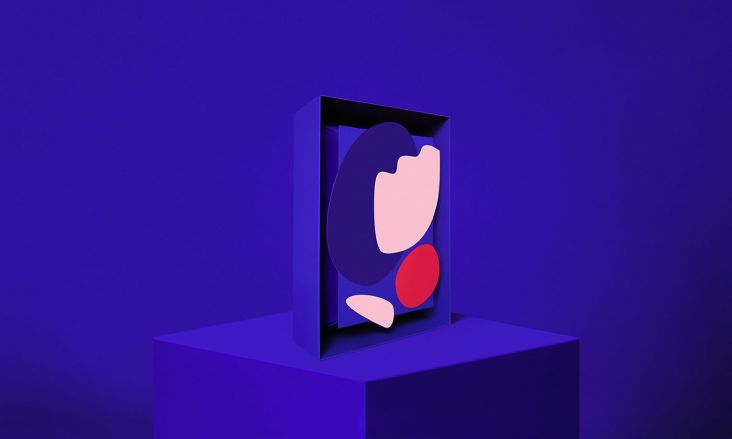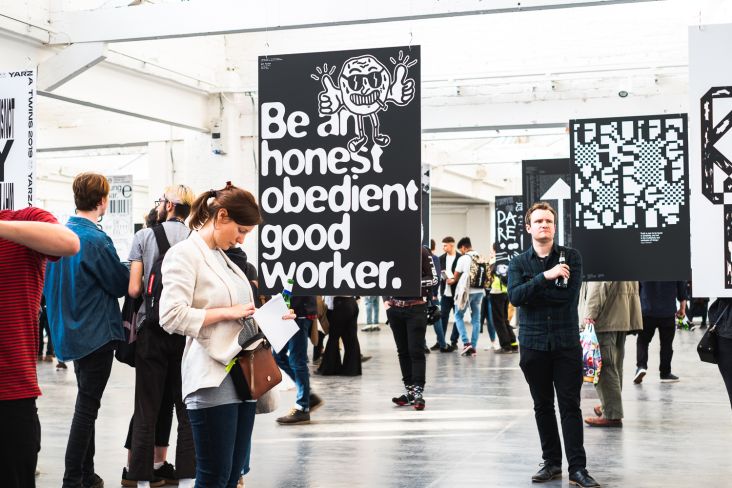Frank Chimero on causing 'good trouble' and re-imagining the status quo to combat achievement culture
Frank Chimero has long been on our interview wish list. The Brooklyn-based designer, illustrator and author of The Shape of Design has had quite the whirlwind career so far.
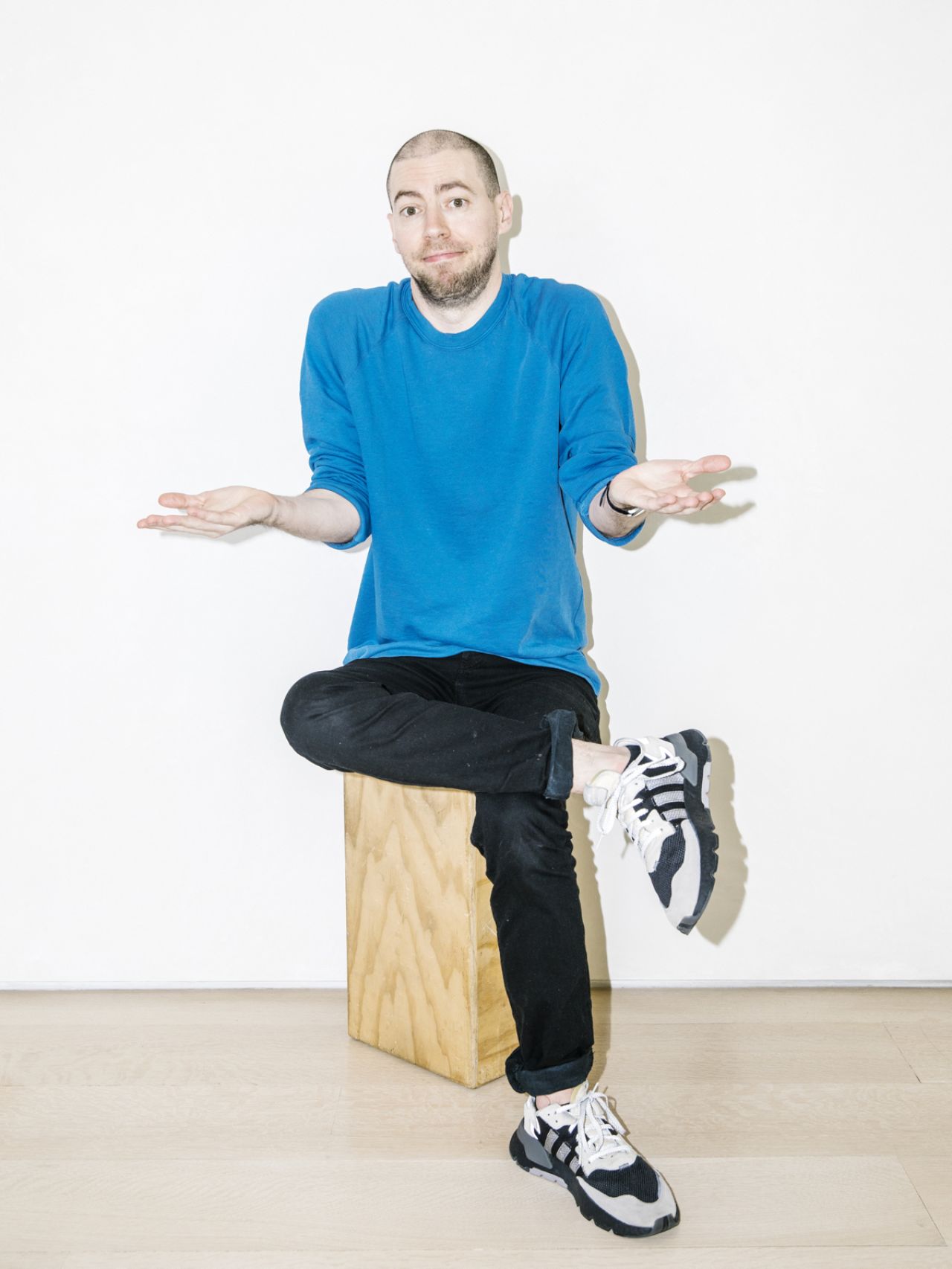
You will know his work from his collaboration with Tina and Ryan Essmaker, designing the print version of The Great Discontent. And perhaps his designs for Microsoft, Starbucks, Adobe and Facebook.
He's been recognised by the industry, too. In 2010, he was chosen as a Young Gun by the Art Directors Club and was honoured as a New Visual Artist by Print Magazine.
A big believer in wide curiosity and "good trouble" (more on this later), Frank also helped co-found Abstract, a software company focused on supporting a modern, collaborative, and open design process.
On a sunny breezy day in New York, I met Frank for lunch at Buvette to discuss what he's up to, how he feels about modern working and what he's got in store next.
Tell us about this concept of "good trouble"
I’ve never really thought about sitting down and defining good trouble, so let me take a stab at it. Good trouble is questioning and re-imagining the status quo, and having your actions stand in contrast to the norm. Maybe it’s society’s status quo. Maybe it’s your own – all fair game. There’s usually a fair amount of cleverness in it. Civil disobedience for social causes is good trouble – consider the criticism offered by the peaceful protests of MLK, Gandhi, and their supporters.
"In a gentle way, you can shake the world", and all that. But that’s a big form of good trouble, and I just have my little life, so I’m particularly interested in the small version – how the smallest thought can get under your skin and make you re-evaluate, you know? It’s the mischievousness of changing how you think by finding a new lens.
There’s a quote from the Brazilian entrepreneur Ricardo Semler that I like. He says: "We’ve all learned to answer email on Sundays, but none of us has learned to go to the movies on Monday afternoon." Good trouble is a re-negotiation of the rules, creating a little pocket of autonomy where it is safe to ask yourself the question, "How would I have it if I could choose?"
Lately, I’ve been calling my answers to that question “Frankball”, so that I remember this is all a game. I’m creating rules for the game so that I can have my little business support the life I want to live. A lot of Frankball is tied to undermining the rotten parts of American work culture that can swallow your life.
I read once that hunting and gathering societies only work about 20 hours a week. Learning that got under my skin really bad. Wednesday is just as much a part of your life as Saturday, but you have to remind people of that. So in Frankball, there’s a lot figuring out how to pace projects and follow through on responsibilities with strength and quality, all while carving out time to play hooky. My life is going to be filled with just as many Wednesdays as Saturdays, and I would like to claim more than 2/7ths of my life for myself, thanks.
Do you think perhaps guilt plays a part if we don't follow the social norms of when we "should" work?
Perhaps, if you have the luxury to choose! I wish everyone had that kind of agency, but even then, it is very easy to say, “I could leave now, but I better stay in case that email comes in. Maybe so-and-so will have a question before the meeting. Better stay put.”
In my experience, that’s usually fear talking, so guilt probably runs alongside. It’s really easy to think that not working full bore is somehow failing your teammates or that withholding effort is poor work ethic and moral weakness. That thought is worth interrogating, though, and it all seems kind of ridiculous once you get it out in the open. There should be no guilt for refusing to work hysterically.
Should we have a general cultural shift away from the five-day, 40+ hour weeks?
Yes, especially because a standard 40-hour work week probably sounds like a reprieve to many of the creative professionals reading this. I really don’t think we are doing any more meaningful work now that we are working more. If anything, that glut of extra time working gets filled with some frustratingly superfluous nonsense – less and less important things take up more and more of your time. It’s so wasteful, and we know it, but don’t question the game because we want to get ahead. It’s like a Stockholm Syndrome with hustle culture.
Take a look at the increase in discussion about burnout – a natural response from trying to thrive in an achievement culture. Fatigue happens to your body, but burnout exhausts your soul. Long hours of wasteful drudgery rub up against the belief that anything is possible. What can you do with that other than collapse?
Slow down, find a quiet place and create time for solitude so you can hear yourself. It’s so noisy out there.
The nature of running a business can mean we worry that if we stop, we'll get left behind. Do you ever get the "fear"? Especially when there's always something we could be doing.
I feel the fear you mention. There’s no kicking the fact that a significant portion of my fate is out of my hands, and that no matter how successful, clever, talented, rich, beautiful, or whatever I could become, all of that could never offer me enough control to satisfy the small, scared parts of me. You just try to recognise it and name it – monkey mind, the ego, small Frank, whatever – then loosen your grip. These feelings swell up and recede like any other emotion that I feel. There’s nothing to do. I eventually forget.
I’ve had extremely busy seasons and very slow times at my studio. My business will always ride the waves of the economy. It may even go bust tomorrow – who knows? The whole thing feels precarious, even in good times, and it’s worth remembering that. One time, I went almost two years without having any good work to show for it. I had no energy to spin up something self-initiated to add to my portfolio. No one noticed I was gone. I ate peanut butter and jelly sandwiches for a couple of months to save money and was grateful I that I didn’t have a child to feed. My savings thinned out, but eventually, another opportunity came through from a previous client.
Everyone has their lean years, but I think they make a poor compass. You can always work more. We need to disabuse ourselves of the thought that work is the solution to our problems, or that by keeping up we are getting closer to something worth having. Being more active is not being freer. I won’t romanticise those months on peanut butter and jelly as freedom, but I can confidently say that in retrospect the problems of that time were no better or worse than the ones I’ve experienced at the peak of my successes.
Tell us more about Abstract? Where did the inspiration come from? What problems is it solving?
Abstract came from a need to better document and structure digital design work, especially in product design. It’s a product born from a personal need in my work, along with my co-founders Josh Brewer and Kevin Smith. Design is usually working in tandem with engineering on software projects, and Josh and I were always envious of the tools Kevin had at hand for his programming work. Iteration is part of the game, but there were no good design tools to structure that iteration (duplicated files created confusion) or to track the work as a source of information for collaborators. We knew this was handled well through version control on the engineering side, and when Kevin mentioned there was a slim chance we could make something that’d work similarly for design, Josh and I leapt out of our chairs in excitement.
Ideologically, Abstract exists to pave the roads that allow for inclusiveness, beginning with greater collaboration and more diverse perspectives in the design process. Everyone has a contribution to make, and a big part of hearing those voices is creating and reinforcing more equitable, visible, and structured opportunities to share and be heard. How you build is just as important as what you’re building. I’m really proud of everyone over there, and I am their biggest cheerleader.
You try your hand at many things. Where are you most comfortable?
That variety of experience has helped me with pattern recognition and synthesising to guide the big ideas behind a project. I think I’m my happiest and most useful at the start of things, which has made my branding projects a good fit.
What are you up to next?
Jumping into a reprint of The Shape of Design. More brand projects for clients, and finally documenting the work I’ve been doing over the last couple of years. And more reading and writing. It’s clear I have a lot on my mind these days!
With everything you've learnt so far, what piece of advice can you give to those starting out?
I’ve had two mantras in the last couple of years. The first is: "The simple things are worth doing well because they happen every day." That dovetails into the second, "Be grateful for every chance to do something right."
Beyond that, I’d say slow down, find a quiet place, and create time for solitude so you can hear yourself. It’s so noisy out there. And find the good ones around you – the patient, compassionate, and interested – then elevate the conversation as often as you can. The things that nourish you are also the things that will nourish your work, give it purpose, depth, and soul. It’s hard to say what those things may be, but life has taught me over and over that, you don’t need to know if you are willing to ask.




 by Tüpokompanii](https://www.creativeboom.com/upload/articles/58/58684538770fb5b428dc1882f7a732f153500153_732.jpg)


 using <a href="https://www.ohnotype.co/fonts/obviously" target="_blank">Obviously</a> by Oh No Type Co., Art Director, Brand & Creative—Spotify](https://www.creativeboom.com/upload/articles/6e/6ed31eddc26fa563f213fc76d6993dab9231ffe4_732.jpg)








